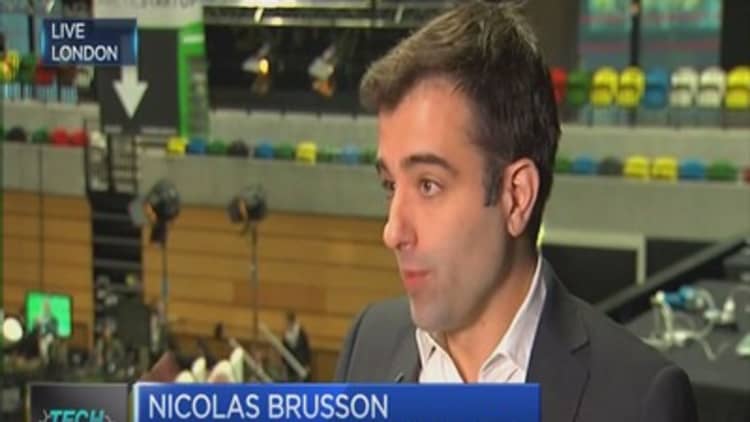
French ride-sharing start-up BlaBlaCar is the latest technology firm to be bullish on driverless cars, predicting they'll be used like public transport.
BlaBlaCar was recently valued at $1.5 billion after a recent funding round. It is a ride-sharing service for long-distance journeys. For example, someone could post that they driving from London to Manchester on specific date, and another user could hop in the car with them and share the cost.
The service claims that one of its biggest selling points is its community, where passengers and drivers can rate each other. And BlaBlaCar's co-founder thinks driverless cars will be "fantastic" for the start-up as they will need to be filled up with as many passengers as possible.
"Once you have driverless cars, especially between cities, the only way to use them efficiently is to put more than one person in the car, and they will almost be used like public transport. So the question is how do you match four people in that car?," Nicolas Brusson, co-founder and chief operating officer of BlaBlaCar, told CNBC in an interview at the TechCrunch Disrupt conference on Tuesday.
"We will be one of the key services because we will be like, how do you share driverless cars? So from that point of view, you will need a community of people sharing rides. Who has that today? We do. Google doesn't have that, car manufacturers even less. So that's where I think the long term value is for us."
Driverless cars has been one of the hottest topics for technology companies from Google to Uber. Google is testing its own autonomous vehicles while Uber is developing some self-driving cars itself.
Emerging market expansion
BlaBlaCar is expanding aggressively, with Brusson saying 50 percent of the company's international expansion has been done through acquisitions. The $200 million funding round announced in September will be used to fuel further expansion.
Brusson explained that he is bullish on emerging markets because in countries like India, there is a lack of infrastructure to travel long distances which BlaBlaCar can fill.
"I think for some routes in India, it's not about being the first choice, it's about being the only choice. Today in India, we end up connecting cities where you no other way to go than to drive," he said.
But like other European or U.S. companies in the space, Brusson admitted that the company needs to concentrate on its existing services. He told CNBC that in the first quarter of next year, BlaBlaCar will be introducing an ID service in India for drivers and riders which will be checked against government records, something seen by its users as key for security and safety. In other markets, the verification process works by peer-to-peer public reviews.
Brusson also said that payments will be a key focus of development for the company. It makes money from taking a percentage cut from a payment that goes through its platform. But in markets like India where cash is the preferred method of payment, the start-up does not make any money off a transaction, something BlaBlaCar wants to change quickly.
"We need to be smarter on payments. We haven't cracked it yet," Brusson said.







